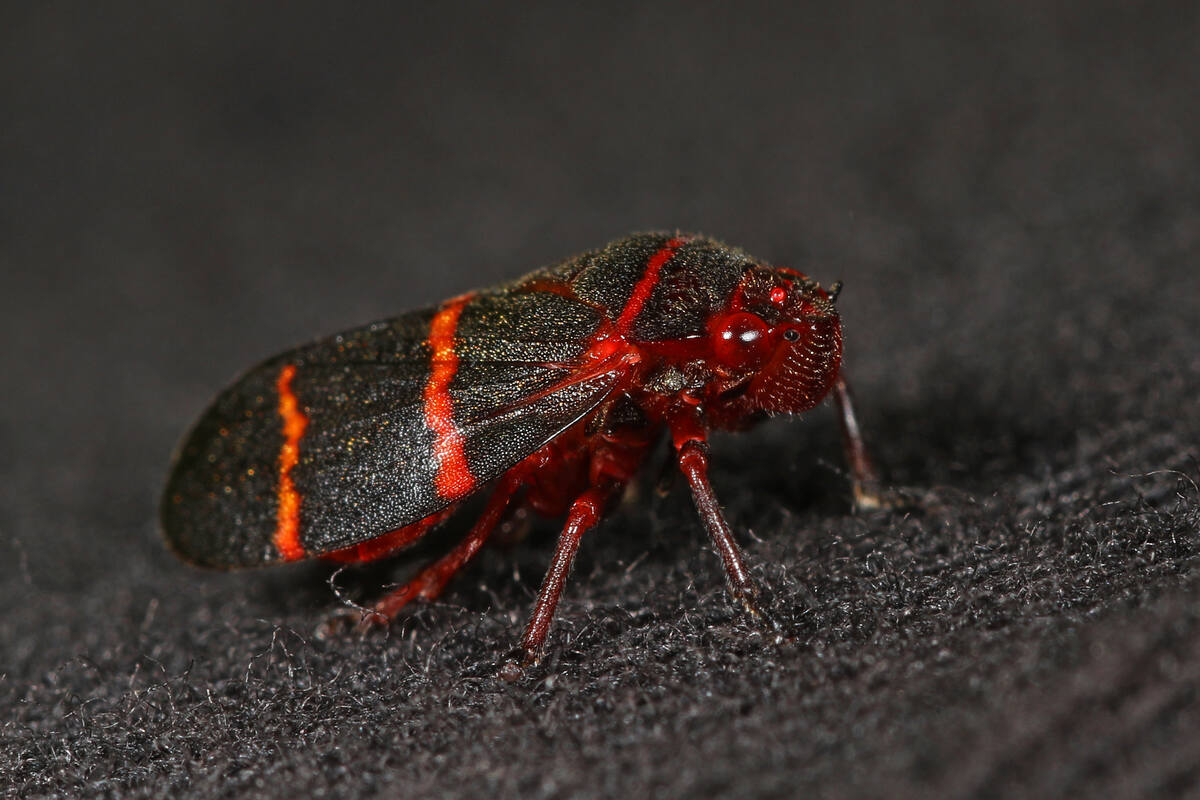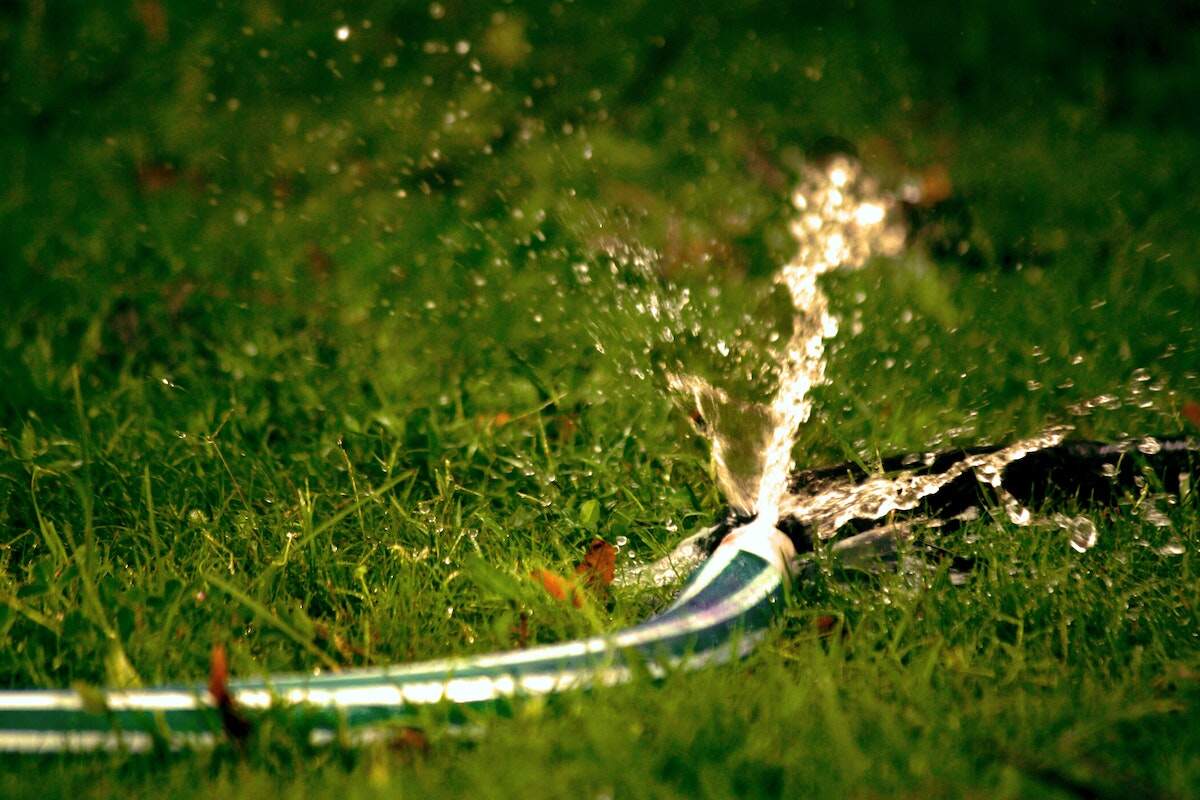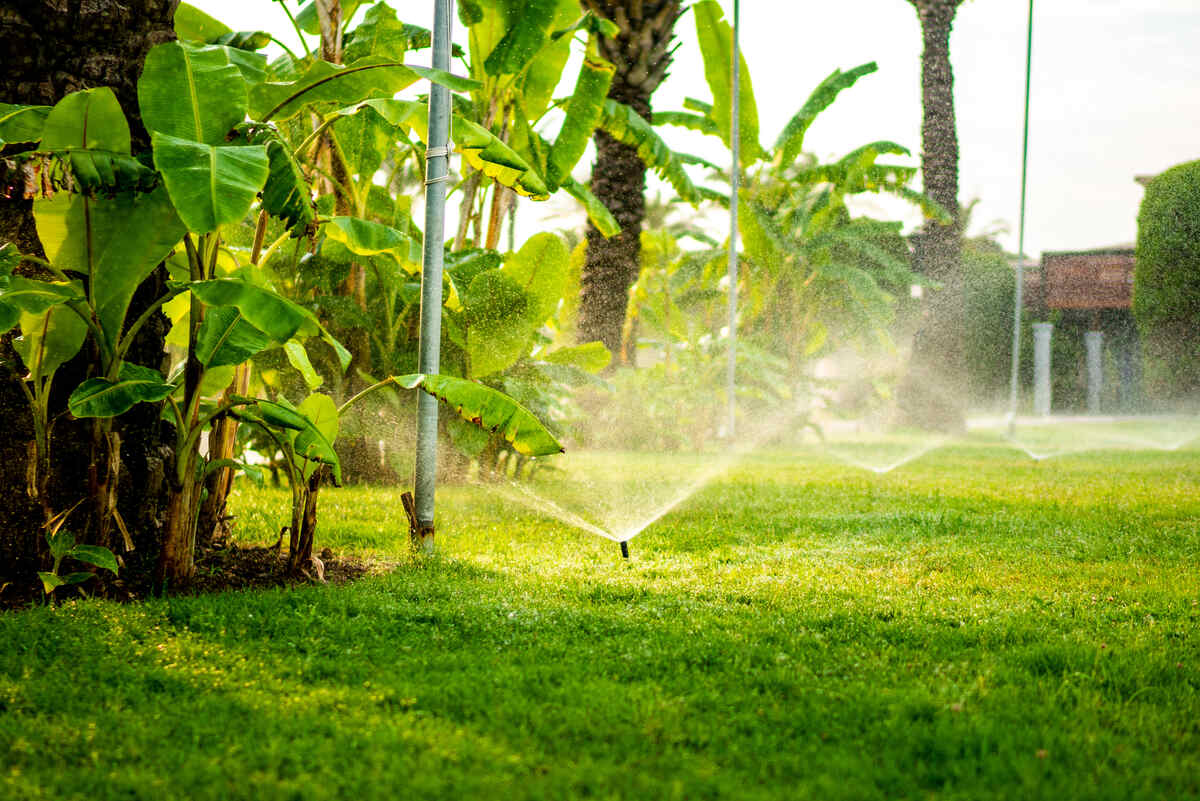
Lawns in the Crestview-Fort Walton Beach area of Florida should get water about twice a week – 1 to 1.5 inches total including rainfall – during the warmest months of the year and less frequently during the late fall and winter.
A well-watered lawn in the Crestview-Fort Worth Beach-Destin area is thick, lush, and vividly green. That’s why it’s important to water your lawn, especially during the hot summer months.
Factors Affecting How Often You Water
Several factors impact how often your lawn needs water, including your grass type, the type of soil in your yard, and the season of the year.
Soil Type
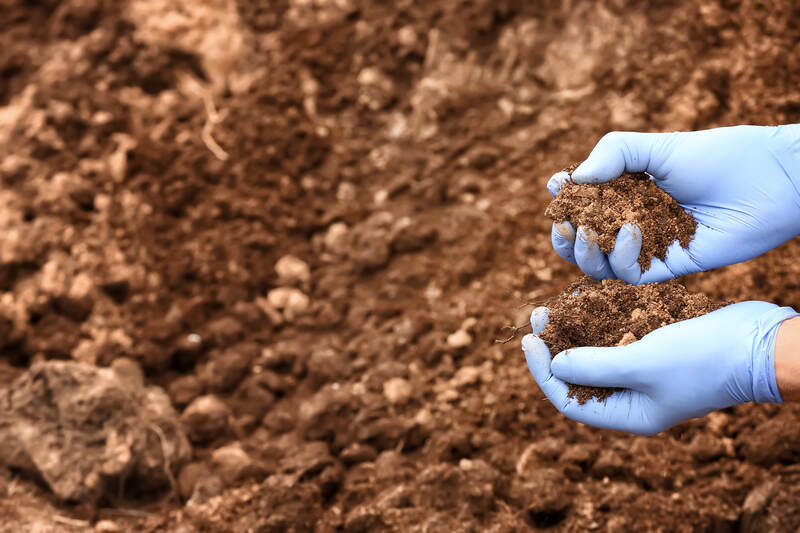
Your lawn’s soil type determines how often you should water it. Each region of Florida has different types of soil, and the Crestview-Fort Worth Beach-Destin area has sandy soil for the most part, less so in Crestview, which is further inland.
Sandy soils drain quickly and don’t hold water very well, so grass may need more frequent watering to capture all the moisture it needs. As a result, water your lawn three times a week with about ⅓ inch of water per session.
Season
Our rainy season in the Panhandle generally is from April to October. During this period, time your irrigation around rainfall. If it rains moderately to heavily, you don’t need to irrigate for at least a couple of days after.
We frequently see irrigation systems running during rain storms or shortly after. That’s because people often set their systems to run on a definite schedule, then forget about them. Don’t do it. Too much water can actually be bad for grass. Lawns need water, but they also need to dry out, During those dry times, grass roots spread in search of moisture and become stronger.
In our cooler season, which lasts from November to April, you only need to water your lawn once a week.
Grass Type
The type of grass you grow also affects watering frequency. Each grass type has its own needs and preferences, and knowing what they are is vital to a healthy lawn.
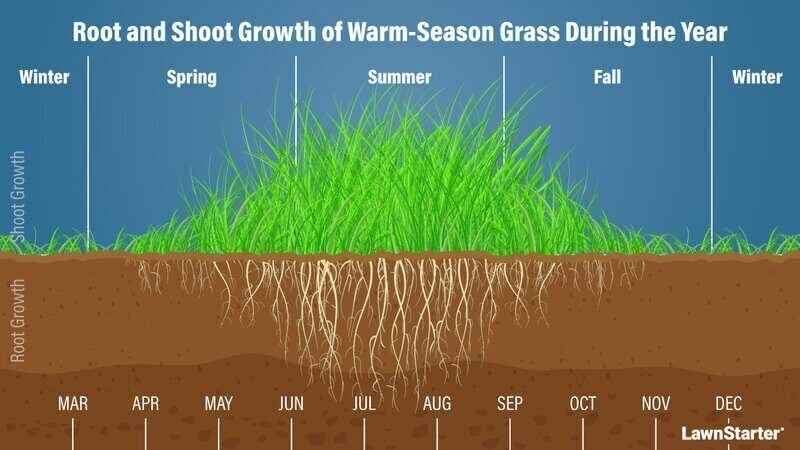
Warm-season grasses are the way to go in Fort Walton Beach, Destin, and Crestview – in fact throughout much of the Southeast – because they can handle the hot sun and high temperatures. The most common grasses you’ll see here are:
- Bahiagrass: A drought-tolerant and low-maintenance grass.
- Centipedegrass: A low-key and low-maintenance, apple-green grass.
- St. Augustinegrass: Thrives in both sun and shade.
- Zoysigrass: Robust, low-maintenance, and drought-tolerant.
- Bermudagrass: Loves full sun and tolerates heavy foot traffic.
Use the following table as a guideline to know how many inches per week your water needs each season:
| Grass Type | Spring | Summer | Fall | Winter |
| Bahiagrass | 1 – 1.5 | 1.5 – 2 | 1 – 1.5 | 0.5 – 1 |
| Centipedegrass | 0.5 – 1 | 1 – 1.5 | 0.5 – 1 | 0.5 – 1 |
| St. Augustinegrass | 1 – 1.5 | 1.5 – 2 | 1 – 1.5 | dormant |
| Zoysiagrass | 0.5 – 1 | 1 – 1.5 | 0.5 – 1 | 0.5 – 1 |
| Bermudagrass | 1 – 1.5 | 1.5 – 2 | 1 – 1.5 | dormant |
Lawn Watering Tips
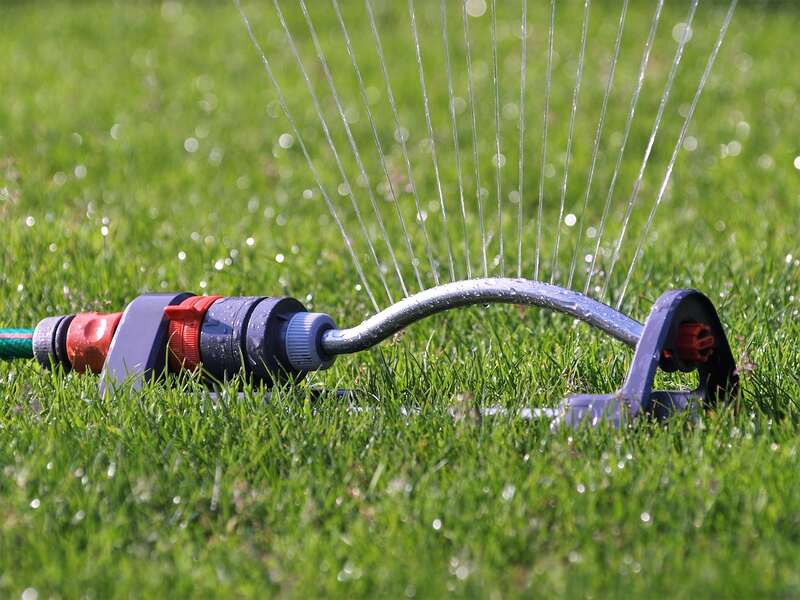
Here are several lawn watering tips to ensure your grass grows green and thick:
Water Deeply and Less Frequently
As mentioned earlier, your lawn’s roots dig deeply into the ground to search for water and nutrients to protect them during periods of drought. So avoid shallow, frequent watering. It causes the grass to develop weaker roots and make it more susceptible to drought and diseases.
Be Aware of Florida’s Water Restrictions
To conserve water in case of a dry spell, the Sunshine State has implemented five Water Management Districts. Northwest Florida’s Water Management District prohibits watering between 10 a.m. and 4 p.m. but otherwise doesn’t restrict irrigation. Nevertheless, check in with them periodically to see if any changes occur.
Water Early in the Morning
The best time to water your lawn is between 4 a.m. and 8 a.m., especially in summer. The temperature is cooler and the sun hasn’t been out for very long, so the ground will have plenty of time to absorb the water. Watering in the high heat of the day will cause much of the water to evaporate before it gets to the lawn’s roots.
Also, don’t water at night, as water will remain on your grass blades, making your lawn more susceptible to fungi and diseases. Avoid watering on windy days, as the wind can blow away the water droplets.
Install an Irrigation System
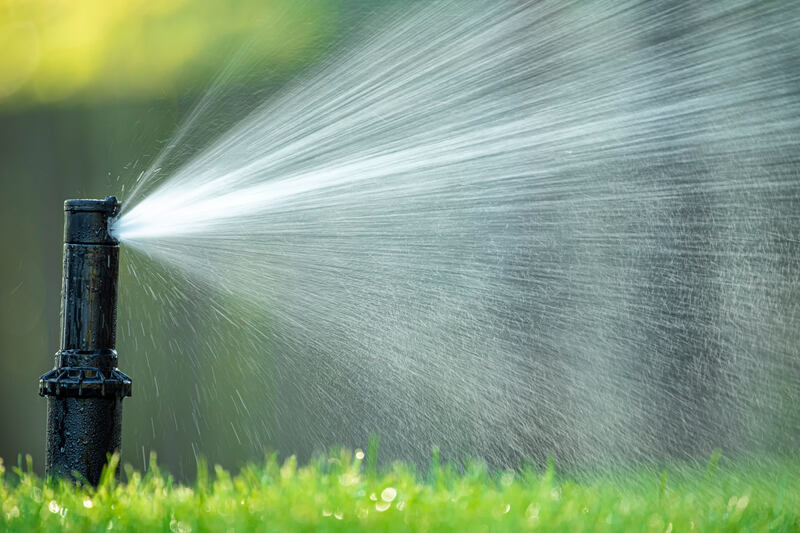
An irrigation system will save you valuable time and can be programmed to turn on in the early hours of the morning. It disperses water evenly, so there’s no worry about puddles forming.
Set your irrigation system to once a week in winter. Warm-season grasses go dormant during this time, and overwatering them makes them vulnerable to pests and fungal diseases.
Making your Irrigation System Smarter
We understand you’re busy and don’t always have time to set your sprinklers for the next morning. In this case, make your irrigation system more efficient:
- Upgrade to High-Efficiency Nozzles: Rather than putting out a lot of mist, high-efficiency nozzles spray larger and heavier water droplets at a slow enough rate to let the ground absorb it.
- Install a Rain Shut-Off Device: Rain sensors stop your irrigation system from turning on when it rains, lowering your water bills and preventing overwatering.
- Use Soil Moisture Sensors: They measure the amount of moisture in the soil, ensuring your sprinkler system doesn’t overwater your lawn.
Adjust Watering Duration
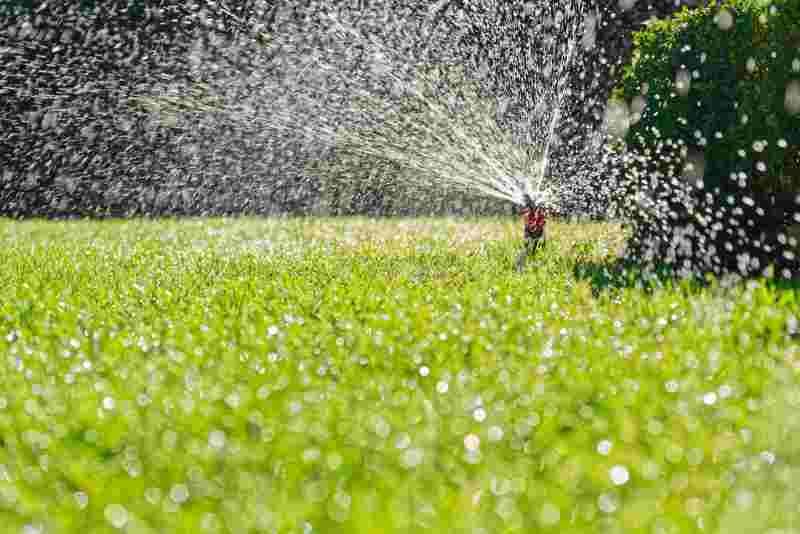
Knowing how long to water your lawn is crucial to maintaining its health, as you’ll ensure your lawn has enough moisture to keep it satisfied until the next time you water.
The Can Test
The tuna can test involves placing several tuna cans or coffee mugs on your lawn and seeing how long it takes for your sprinkler system to fill them up. Doing so takes the guesswork out of how long you need to water your lawn. To perform this test:
- Place a few empty tuna cans or coffee mugs evenly around your lawn.
- Turn on your sprinklers and let them run until the cans fill up.
- Set a timer or use your smartphone’s timer while the sprinklers are running.
- Once the cans fill up, stop the timer. This is how long you need to water your lawn.
Aerate and Dethatch Your Lawn
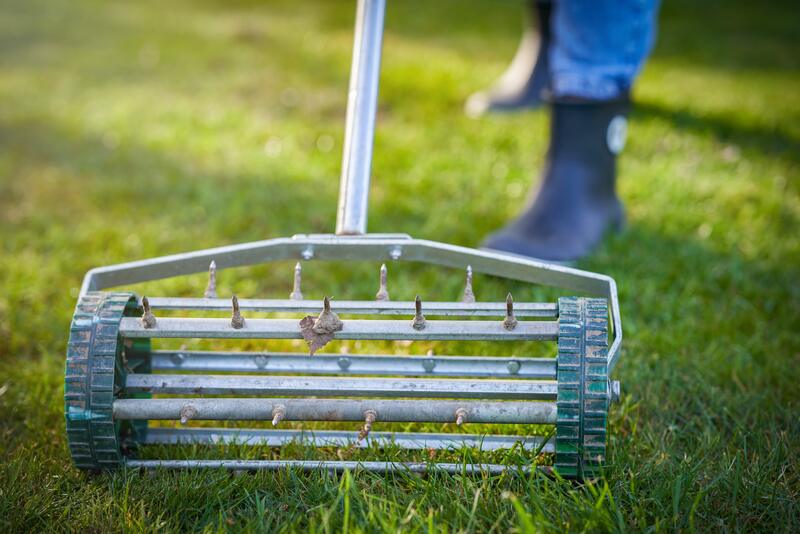
Compacted soil keeps water from penetrating the soil, causing water runoff and forcing you to water more frequently to compensate. Aerating your lawn pokes holes into the soil, providing a passageway for the water to travel to the roots and saving water.
Similarly, a thick layer of thatch serves as a barrier between the water and your soil. Detaching your lawn gets rid of the thatch and allows the water to penetrate the soil. This is particularly important if you have a grass more prone to thatch, like St. Augustinegrass and bermudagrass.
If you want to know what other lawn care tasks you should do, check out our lawn care tips for Crestview-Fort Walton Beach.
FAQ
How much annual rainfall does Florida get?
On average, Florida gets 52 inches of rain per year.
How do I know if my lawn needs water?
Look for the following signs your lawn needs water:
- Footprints or tire tracks remain on the grass long after they were made.
- Brown or yellow patches on your lawn.
- Bluish-grey blades.
- Folded grass blades.
- Your grass grows slower than normal.
Could I harvest my rainwater to use as a way to water my lawn?
Yes, and Florida doesn’t place any restrictions on rainwater harvesting. You can use a rain barrel or cistern to collect rainwater from your roof or gutters.
Hiring a Professional
Watering your lawn can be tricky, but it’s vital to get a lawn that will make you the envy of the neighborhood. That said, we understand that you’d rather be at the beach than watering your lawn, so contact LawnStarter’s pros and have them do the watering for you.
Main Image Credit: aboutmomentsimages / Adobe Stock Free / License

